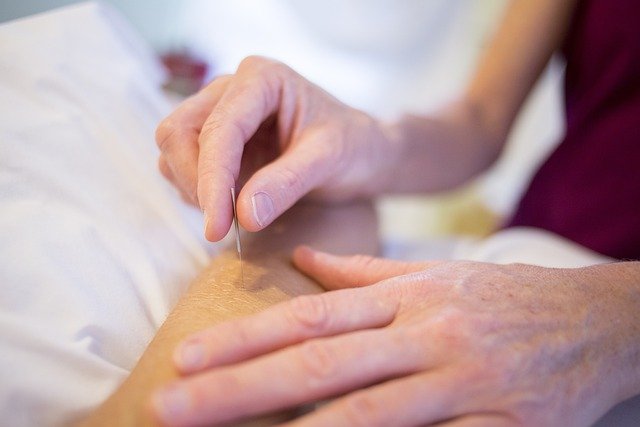Anxiety Treatment Clinical Trials: Exploring New Frontiers in Mental Health Care
Anxiety clinical trials aim to explore new treatments or therapies for managing anxiety disorders. Participants may gain access to cutting-edge care at no cost while contributing to mental health research. Trials are usually run by universities or medical centers.

What Are Anxiety Clinical Trials and How Do They Work?
Anxiety clinical trials are structured research studies designed to evaluate the safety and effectiveness of new treatments, medications, therapy approaches, or combinations of interventions for anxiety disorders. These trials follow strict scientific protocols and are typically conducted in phases. Early phases assess safety with small participant groups, while later phases involve larger populations to determine effectiveness compared to existing treatments or placebos.
Participants in anxiety treatment clinical trials undergo thorough screening processes to ensure they meet specific criteria related to their anxiety diagnosis, medical history, and current symptoms. Throughout the trial, volunteers receive regular assessments and monitoring by healthcare professionals specializing in mental health. This structured approach helps researchers gather valuable data while ensuring participant safety remains the priority.
Who Can Participate in Mental Health Studies for Anxiety Disorders?
Eligibility for anxiety clinical trials varies depending on the specific study objectives. Most trials seek participants who have been diagnosed with specific anxiety disorders such as generalized anxiety disorder (GAD), social anxiety disorder, panic disorder, or post-traumatic stress disorder (PTSD). Some studies focus on treatment-resistant anxiety, while others may target newly diagnosed individuals.
Age requirements typically range from 18 to 65 years, though some trials specifically study anxiety in adolescents or older adults. Researchers may exclude individuals with certain medical conditions, pregnancy, substance use disorders, or those taking medications that could interfere with the study treatment. The screening process usually involves questionnaires, interviews, physical examinations, and sometimes laboratory tests to ensure participants meet all criteria.
What Benefits Can Volunteers Expect from Anxiety Treatment Clinical Trials?
Participating in anxiety treatment clinical trials offers several potential advantages beyond contributing to scientific advancement. Volunteers often receive comprehensive mental health evaluations that may provide more detailed insights into their condition than standard clinical assessments. This thorough diagnostic process can be valuable even if a person doesn’t continue in the study.
Trial participants generally receive the experimental treatment at no cost and may gain access to innovative therapies years before they become widely available. Throughout the study, volunteers benefit from regular monitoring by specialized mental health professionals, often receiving more frequent attention than standard care would provide. Some studies also offer compensation for time and travel expenses, making participation more accessible for those with financial limitations.
What Are the Potential Risks of Joining Anxiety Clinical Trials?
While anxiety treatment clinical trials offer significant benefits, potential participants should understand the possible risks. Experimental treatments may cause unexpected side effects or may not work as effectively as researchers hope. Some participants might experience discomfort from certain assessment procedures, such as blood draws or psychological questionnaires that address difficult emotional topics.
Participants in randomized controlled trials may be assigned to a placebo group, meaning they wouldn’t receive the experimental treatment during the study period. Time commitments can also be substantial, with multiple site visits, follow-up appointments, and daily treatment adherence requirements. Before enrolling, it’s essential for prospective volunteers to thoroughly review the informed consent document that outlines all potential risks and benefits specific to the particular trial.
How Are Anxiety Clinical Trials Transforming Mental Health Treatment?
Anxiety clinical trials have revolutionized our understanding and treatment of anxiety disorders in remarkable ways. Recent research has expanded beyond traditional medication studies to include investigations of therapy delivery methods like telehealth, digital therapeutics, and smartphone applications that increase accessibility. Some innovative studies are exploring the potential of psychedelic-assisted therapy, neurostimulation techniques, and personalized treatment approaches based on genetic profiles.
In the United States specifically, major research universities and medical centers are leading groundbreaking studies examining how environmental factors, including social determinants of health, impact anxiety treatment outcomes. These studies are helping to develop culturally responsive interventions for diverse populations who have historically been underrepresented in mental health research. By participating in these studies, volunteers contribute directly to making anxiety treatments more effective, accessible, and personalized.
Where Can You Find Legitimate Anxiety Treatment Clinical Trials Accepting Volunteers?
Finding reputable anxiety clinical trials requires knowing where to look and understanding how to evaluate opportunities. Several trusted resources connect potential participants with verified studies throughout the United States.
| Resource | Description | Features |
|---|---|---|
| ClinicalTrials.gov | Government database of all registered clinical trials | Search filters for location, condition, and trial status |
| National Institute of Mental Health (NIMH) | Government-funded anxiety research | High-quality trials at major research institutions |
| Anxiety and Depression Association of America | Nonprofit organization focused on anxiety disorders | Curated listings of vetted clinical trials |
| Major University Medical Centers | Research hospitals conducting anxiety studies | Often provide comprehensive care during trial participation |
| Mental Health America | Nonprofit connecting patients to research opportunities | Resources for understanding trial participation |
When exploring these resources, look for studies sponsored by reputable institutions like universities, government agencies, or established pharmaceutical companies. Legitimate trials will never charge participants fees to join and will provide detailed informed consent documents. Before committing, consult with your current healthcare provider to determine if a specific trial aligns with your treatment needs and medical history.
Conclusion
Anxiety treatment clinical trials represent a crucial pathway for advancing mental health care while providing volunteers with access to potentially groundbreaking therapies. By participating in these structured research studies, individuals not only gain potential personal benefits like specialized care and innovative treatments but also contribute to the broader scientific understanding of anxiety disorders. As research continues to evolve, clinical trials will remain at the forefront of developing more effective, accessible, and personalized approaches to managing anxiety disorders.
This article is for informational purposes only and should not be considered medical advice. Please consult a qualified healthcare professional for personalized guidance and treatment.




